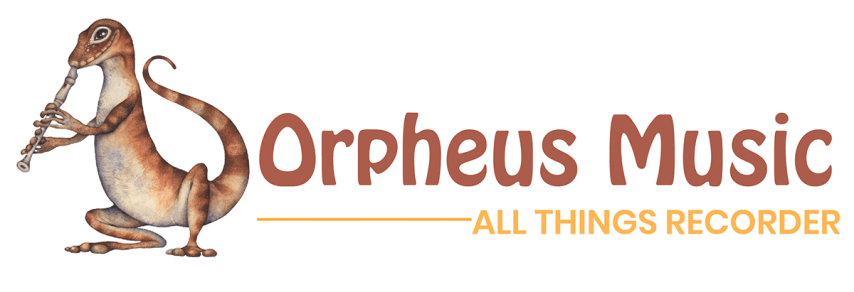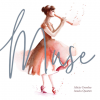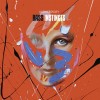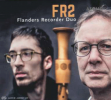
2021 Interviews - Alana Blackburn, Joris Van Goethem, Alicia Crossley
Alicia Crossley
Alicia Crossley, one of Australia's leading recorder players, presents an exciting program of new Australian works for Bass recorder. With diverse compositions written by some of Australia’s leading female composers, Bass Instincts explores the instinctual musicality, versatility and virtuosity of this unique instrument. Alex Joly recently interviewed Alicia to find out more about this wonderful album.
.jpg)
Firstly - how have you been after our long 106-day lockdown in Sydney?
I've been doing pretty well, all things considered. Thankfully I had some work in addition to putting the final touches on "Bass Instincts" to keep me busy during the recent lockdown.
What was the concept or inspiration for your newest album?
"Bass Instincts" celebrates two things, the versatility and virtuosity of the bass recorder, and Australian female composers. Promoting the bass recorder has long been a passion of mine and "Bass Instincts" is my latest project that aims to showcase the unique musical qualities of the bass recorder through specially composed compositions by local composers.
What is your creative process when you are collaborating with the composers when writing new music for the recorder?
The creative process differs for each collaboration since each composer has their own method of writing. Some composers have very strong ideas about what they want to write and only need minimal workshopping, while other composers will have multiple ideas that they want to explore and we will workshop regularly to build a piece. When I ask a composer to collaborate on a new composition, I will approach them with either the specific instrumentation (such as my album "Muse" which features recorder and string quartet repertoire), or a theme for the composition. Even though I often regularly workshop ideas with composers, I like to give them as much compositional freedom as possible and act more as a guide who offers technical advise to fine tune the composition.
Were there any compositions or composers in this album who challenged your artistic aesthetic or recorder techniques/playing styles in an unexpected way?
I got to explore a diverse range of writing style with the composers selected for "Bass Instincts". In Anne Boyd's "Alhekulyele", we explored a range of sung chant-like melodies that weave through the recorder line to create an ancient soundscape. Amanda Cole's compositions often feature microtonal structures which is one compositional format I have not really worked with, so it was wonderful to get to work so closely with Amanda to find the best notes to use on the bass recorder to achieve her interferance beat-based composition. Exploring textural sounds to form the foundation for Fiona Hill's "Lost in the Darkness" was also an exciting collaborative process. It isn't unusual for composers to feature extended techniques in contemporary compositions, but it was interesting to explore these technique with the integration of live electronics and finding extended techniques that had the correct texture for the theme of the piece.
How did our 2021 lockdown affect your album/musical career?
Like many musicians, lockdowns meant our performing careers were put on hold with many concerts cancelled. During this time I was focusing on planning future projects, finalising details for the "Bass Instincts" cd release, and I also had the opportunity to film some music videos to help build my online presence.
How has your style evolved since your very first album "Addicted to Bass" ? What has made you return to the bass recorder for a second album?
A lot has changed since I released "Addicted to Bass" 10 years ago. "Addicted to bass" was not only my first recording project, but also my first major solo performing project after completing tertiary studies. While I was confident in my performing abilities, I don't think I truly knew or accepted my individual playing style. Since then, I have become far more familiar with my performing strengths and weaknesses, and feel much more confident to offer specific advice about writing for the recorder when collaborating with composers.
Returning to the bass recorder for a second album was always on my radar since I believe the instrument has so much virtuosic potential that needs to be promoted, but I had other projects that I wanted to embark on before dedicating my time to working on an another exclusively bass recorder album. I also wanted to take my time to find the right combination of composers to work with to curate a new album that would best showcase the versatility of the bass recorder.
Where can we see you perform?
I will soon be announcing new dates for my "Bass Instincts" tour which had to be postponed due to lockdowns this year, and I'll be joining Pinchgut Opera for some of their concerts in 2022.
What’s next for you? What are you looking forward to in 2022?
I am so excited to get back on the concert hall stage in 2022 and performing for audiences again. I will finally get to perform the world premiere of all the pieces created for "Bass Instincts" and I'll be starting some new exciting collaborations.
Lastly, are there any artists (recorder or otherwise) that you adore, and that you feel need to be heard at the moment (or that touched you during lockdown)?
There are many people in the music industry who I admire, particularly those advocating new music. Genevieve Lacey continues to astound audiences with her imaginative projects, and Erin Helyard has established himself as a leading artistic director and musician in this country. Some other people who have been doing amazing work recently are composers Sarah Elise Thompson and Anne Cawrse.
Joris Van Goethem
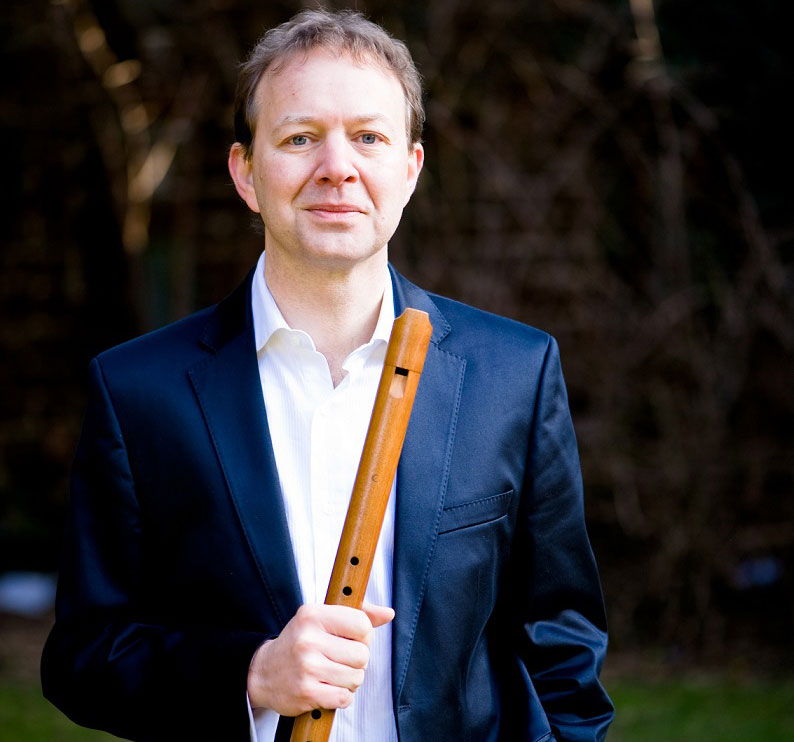
Firstly, how have you been? How was your 2020 affected by covid? Were the arts supported in Belgium during this time?
I hope all is well with all of you in this challenging period. 2020 was an annus horribilis for many people, and also for the musical community. I saw many friends and organisations, working in the performing arts, struggle with the isolation and the loss of income. There was no real support for the arts in Belgium. Out of the crisis came some new creative initiatives, but mostly I saw so many music lovers, unable to play together or to listen to a concert. I’m not sure we can live without culture and art, but I’m sure that life becomes a lot poorer and the world much too quiet and definitely more boring.
I was privileged to have a warm family, a good health, a comfortable study room and to be able to continue teaching. The teaching online was not so bad as I thought it would be. I noticed superb results and a growth of independency with some of my students. But I learned that nothing can replace the personal interaction in a “live” lesson.
Were you able to have any recorder related projects during lockdown? Have you been able to play the recorder?
I stopped counting the annulations of concerts, projects and courses. It rained cancellations, except…
*Tadaaa Trumpet Fanfare*
One of the finest projects planned in 2020 was recording a cd as FR2, a new recorder duo with Tom Beets. We used to be known as half of the Flanders Recorder Quartet. After the Great Farewell Tour of this ensemble, Tom & I took a short break and now we are back as Flanders Recorder Duo “FR2”. Quite unexpected we got a “GO” from our record company at the end of June: you can record the cd first week of August. All Hands on Deck!!! Because making a cd is not only “Play & Go”. There is so much work behind the scenes. Next to the playing you need a good concept.
A cd should have a nice skyline: melancholy next to cheerfulness, improvisation versus control. Tom and I played though piles of music and selected music that we instinctively loved. We also picked different instruments that complemented and reinforced the music. It would be boring if the whole cd were played on the same instruments. Within this flute-kaleidoscope an exceptional recorder consort by Tom Prescott, tuned in fifths going from alto in a to tenor in d and all the way down to contrabass in FF. Home made bamboo pipes, cajons, thumb piano, instruments by famous makers and much more.
At the moment we are doing the first edits of the cd. We are very excited, the cd will be out end of April and we are looking forward to the result.
What are you looking forward to after Covid-19 (if the vaccines work!)?
Normal life, seeing friends and family in the first place. Going to a restaurant is also high on my list J. And as a musician: being back on stage, touring and travelling again. There were fixed plans for an Asian concert tour in Taiwan, China & Japan and a lot of European concerts. Sadly there are no festivals now, so I will have to be patient.
What's some music that you have listened to or repertoire that you have explored during covid that has kept you sane?
Arranging Bach’s famous Toccata & Fugue for organ in d for 2 recorders was a challenging pleasure. This famous piece was probably written for a string instrument. Some think that it might have been a transcription by Bach of an anonymous composition. The haunting tune is a real earworm, and sounds surprisingly well on two recorders.
One of the really great things of being a musician is working with enthusiasts and enabling your instruments to sing, but even more special than that is making such good friends along the way. Two such friends are the composers Sören Sieg and Glen Shannon, who wrote some new pieces that are a real delight to discover and perform. Studying these pieces, every time I find something new within their music, as if by magic! To play the piece by Sören I had to learn to play the cajon in combination with foot stamping and playing the recorder. I can’t tell if this kept me or my neighbours “sane”, but it was a welcoming challenge.
How was the transition from performing, to isolation? How did you fill your days with other activities?
Well, I learned to appreciate walking and nature, time alone and silence.
I’m still hungry for consort-playing. Really craving, I guess it’s an addiction. *Help! Music Nerd Alert!* And I Zoomed so much that I became a Zoombie.
Any tips for teaching online with Zoom? What new teaching techniques have you had to explore/create through online teaching?
Most group lessons worked better than the individual ones. And laptop on eye level and far enough from the camera makes it easier to use body language and makes your information more visual. I also would sacrifice some pixels from my screen if the camera could be positioned in the middle of the screen. Would give the impression that you have eye contact with the other person.
I did a dozen of online concerts. Strangely enough this feels rather OK. You can see some of the audience before and during the concert if you want and have a little chat. Makes it less distant, less “online feeling”, and more personal. While performing it felt very similar to a live concert where you want to give energy, to play with your heart and do the best you can for the listeners. Music is the silence between the notes said Debussy, but when the music stops, after the final note of a piece, I experience a horror vacui in online recitals. An uncomfortable radio silence that has to filled. By telling something on the program or by having to grab your next recorder too fast.
Any musicians/artists you feel need to be heard at the moment?
I was extremely charmed by Rodney Waterman’s “twelve fantasias”. I can get bored when listening to improvisations, but these are great and stunningly divers. Fantasia 7 “Swimming Pool” is my favourite.
Have there been any positives from this current climate of covid for you musically? Are there any projects you’ve been working on during covid that you are looking forward to sharing next year?
Orpheus Recorder Boutique was one of the last courses I did. Two months after this great event, which I enjoyed tremendously, there was not much happening. That made space for other projects. As a courtesy to many fans and recorder players FR2 decided to publish all the public domain pieces of the cd in an FR2-series. This series will comprise 6 volumes. All the editions will also be available digitally and I hope there will be a lot of interest in Recorder Land.
One of the editions deserves extra explanation:
Due to the contacts with the UK Piper’s Guild -an organization where members make their own bamboo pipes, from treble to (contra)basses, and play them in ensembles- I came in contact with unknown, unpublished duets for bamboo pipes by Ralph Vaughan Williams, who as a composer was strongly influenced by folk traditions and instruments. Williams was elected president of the British Piper’s Guild in 1933. Vaughan Williams’ Suite for Two Pipes is a world premiere on the new cd. These recently discovered duets in the style of the day are played on our own homemade bamboo pipes, which we made in the tradition of the Piper’s Guild.
The Vaughan Williams Trust and the UK Piper’s Guild have granted us permission to publish the World Premiere of these exciting and unique pieces that can also be played on recorders. I believe there is no Piper’s Guild in Australia, but guess there must be a handful of pipers…
For more information on the cd and editions click here.
Published in April 2021 Gecko.
Alana Blackburn
Firstly, how have you been? Congratulations on your arts and culture award this year on Australia day. How exciting! Please tell us all about it.
Hi! I’m really well thank you. Yes, I received a Local Citizen Australia Day Award for Art, Culture and Drama in this year’s Armidale Australia Day Ceremony, I was also nominated for Citizen of the Year. The nomination was for my work with various music organisations in the New England Region including Coordinating the Armidale Music Foundation Choral Weekend, a recorder ensemble at the University of New England, and my work developing a partnership between the New England Conservatorium of Music in Armidale and the University. There is a rich cultural history in Armidale. Music has been such a large part of the community; producing a number of wonderful musicians who have remained, returned or moved on, each carving their own musical landscape that leads back to Armidale. I’m very lucky to be in a place that really appreciates arts and culture.
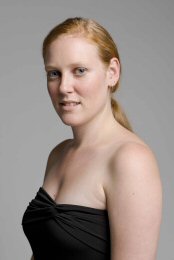
How was your 2020 affected by covid? Were you able to have any recorder related projects during lockdown? Were you been able to play the recorder?
Fortunately, my day-to-day work at the University of New England hasn’t been affected too much. We have been teaching music fully online since 2015, and have created a curriculum accordingly, so we were lucky that we didn’t have to make too many large, radical changes.
Unfortunately, like many artists, what was looking like a fruitful 2020 suddenly changed. I had a number of projects to look forward to including a multicultural performance with musicians from the Ezidi region, performances of the St John Passion, and the New England Bach Festival. All were cancelled or postponed. I was able to perform during COVID though. I was invited by the Sydney Improvised Music Association to take part in one of their regional live presentations “Free Space”. I developed the project ‘Fragments, Figures, Fables’ in collaboration with Dr Sarah Lawrence the Charles Tesoriero Senior Lecturer in Latin at UNE to present an accompanied reading of Boccaccio’s Decameron alongside 21st century repertoire influenced by nature and birdsong. I really enjoyed this project, I was able to combine historical musicology with performance to look at a phenomenon people have experienced and documented in the past, and the role music has played in these challenging circumstances. The performance investigated the importance of music and storytelling to maintain good health and happiness during times of pestilence. The research also explored language and communication through improvisatory musical accompaniment. This performance was streamed live via Facebook through the SIMA page. Although somewhat strange not playing to an audience, it was an interesting experience knowing it was being streamed live to so many people at once; and particularly fascinating to see the comments and conversations that took place at particular points during the performance.
It was a breath of fresh air though when I was able to finally sit in the same room with another musician, and prepare for our first live public performance in November 2020, where we explored some rather unknown works for recorder and lute.
Are there any projects you’ve been working on that you are looking forward to sharing this year?
Yes! This year is quite exciting! A major project this year is working with Ros Bandt on a new multimedia work titled ‘Re-Growth?’. Funded by Create NSW, this work will look at climate change and the fires, floods and drought that seriously affected regional NSW. We have had an absolute ball doing research and development for this work, Ros and our sound engineer spent some time in Armidale exploring the region, taking field recordings from the town and our National Parks, as well as other areas of NSW on their travels from Victoria. At the time of this interview, I’m busy in Melbourne working with our video artist, and it’s all coming together amazingly. Later in the year we will be premiering touring this work.
In the first half of the year I’ll be working with Blush Opera developing new art song for voice and recorder, an all-woman project comprising 4 composers, 4 singers and 4 instrumentalists. Another project that’s bubbling away is continuing some work on a new edition of German recorder and lute music, this will be performed at the New England Bach Festival in April this year, and my collaborator and I will be working on publishing the edition by the end of the year.
What are you looking forward to after Covid-19 (if the vaccines work!)?
Travel. I have been fortunate to travel overseas for musical activities almost every year since returning to Australia. I keep up my international connections and find new opportunities and places to perform. 2020 was the first year I didn’t jump on a plane and head overseas, so I’m really looking forward to that. I’m also looking forward to more live music, not just so I can play, but so I can see other performances. I sat in on an audio/visual event the other night with some Melbourne sound artists and composers, and even gathering in a room to watch new multimedia works was a wonderful feeling.
What's some music that you have listened to or repertoire that you have explored during covid that has kept you sane?
One positive out of COVID was having access to so many wonderful artists and performances from throughout the world. I must say, I really enjoyed watching Anna Stegmann’s Digital Recitals as well as exploring some medieval music for myself.
Any tips for teaching online with Zoom/Skype?
I may have a different approach to teaching online to other teachers. Because I didn’t have to suddenly change, I have been able to take the time to research best practice and publish my findings in the area of online music education. I have taught recorder online for many years with students from Hong Kong, Singapore, Tasmania, NSW North Coast and the USA. Each have their own tailored program to meet their needs and expectations (most importantly). I was invited by Blokfluitist magazine to write about my experiences of online teaching, and the same can be said here; it’s about designing lessons and classes that focus on independence and self-reflection. Teaching online provides an avenue for students to think about their strengths and weaknesses and work with the teacher to develop knowledge and skills; not only on their instrument, but to think about the context in which they are playing and the music itself. It’s an opportunity for students to listen to themselves and develop new ways of practicing to achieve their goals. It’s a challenge for the teacher as well, you can’t ‘zone out’ or teach passively in the online environment. You have to plan the lesson carefully, think about the objectives and have a suite of activities to pull from.
Any musicians/artists you feel need to be heard at the moment?
Everyone has had a challenging time, and I really think we all need to hear and support each other, from community musicians to more well-known international artists. This has also been quite an exciting time for Australian artists; the creativity that has burst out of imposed or perceived limitations has been amazing! Music is important to us in many different ways, whether it be a commercial venture, or to get together with friends. So, my answer to this question would be listen to everyone and enjoy all music whether it be live, online, or within your own community.
Have there been any positives from this current climate of covid for you musically?
I think the forced break last year has given me a chance to sit back, reflect and think about who I really want to be as a musician. I want to make the work I do meaningful, provide a reason for people to listen and engage with what they are hearing. I’ve had some inspirational moments working on my Re-growth project and to me it has reinforced the importance of using music and art as a way to reach audiences on a different level, a creative and inspiring level about some serious and important issues we see day to day on the TV and through social media broadcasts.
Published in February 2021 Gecko.
